Water and waste management is not only an important aspect, but also a key factor in maintaining environmental balance and safeguarding public health. We live in a world where clean water and effective waste management are two important pillars in supporting daily life. Through this article, we will delve deeper into the important role that dosing pumps play in these complex water and sewage treatment processes.
Through the discussion in this article, we will uncover how dosing pumps contribute to every stage of treatment, from start to finish, and how their role is not only vital, but also indispensable in ensuring the success of water and waste treatment processes. By understanding more about dosing pumps, we will appreciate how important this technology is in keeping our environment healthy and sustainable for the future.
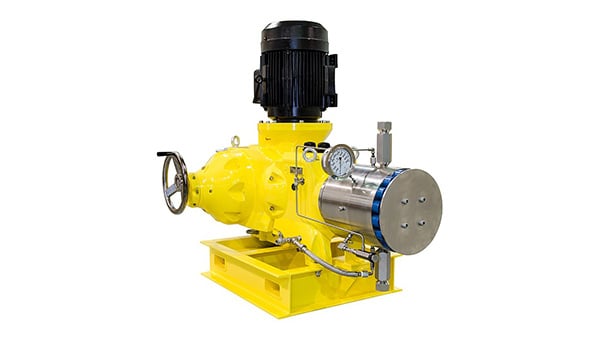
About Dosing Pump
Dosing pumps, also known as dosing pumps, are vital devices in the water and waste treatment industry. It is not just a tool, but an advanced technological solution used to introduce chemicals or other nutrients into the water or waste stream. The key to the effectiveness of a dosing pump lies in its ability to operate chemical addition with high precision, a critical aspect in treatment processes that demand accuracy and consistency.
The pump is specifically designed to regulate the flow rate of the chemical, ensuring that every drop of chemical is added with perfect precision. This is particularly important, given that even a slight error in dosage can have a major effect on the final quality of the treated water. Dosing pumps not only ensure the accurate addition of chemicals according to process needs, but also play a role in maintaining the efficient use of chemicals, thereby reducing wastage and potential negative impacts on the environment.
In addition, the design and operation of a dosing pump will ensure the accurate addition of chemicals according to process needs.
In addition, the design and technology embodied in dosing pumps allow for flexible customization and responsiveness to changing needs. This makes dosing pumps a component that is not only efficient but also highly adaptive in various water and waste treatment scenarios. The use of dosing pumps, therefore, becomes a wise and sustainable choice in meeting the challenges of water and sewage treatment in this modern era.
Components and Types of Dosing Pump
Dosing pumps are complex and sophisticated systems, consisting of several key components that work together to achieve the goal of efficient water and sewage treatment. These components include the pump head, which is the core of the pump's operation and is responsible for the mechanical motion that produces the chemical flow; the motor, which powers the pump and allows for precise control over the flow rate; and the control system, which is the brains of the operation, allowing for accurate and responsive settings according to the needs of the process.
Furthermore, there are various types of dosing pumps.
Furthermore, there are various types of dosing pumps available, each designed for specific needs in the water and sewage treatment industry. These types include:
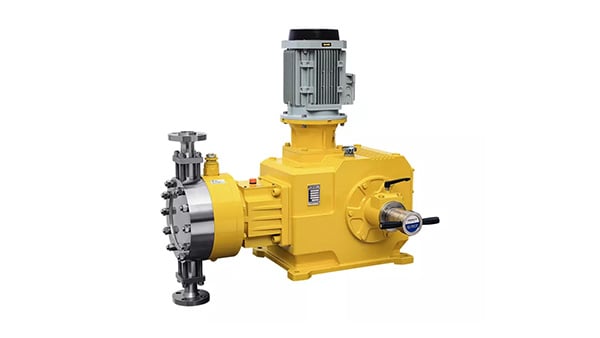
- Diaphragm Pump: This type uses a diaphragm that moves back and forth to create pressure and move chemicals. The advantages of diaphragm pumps lie in their high dosing accuracy and ability to handle a wide range of chemicals.
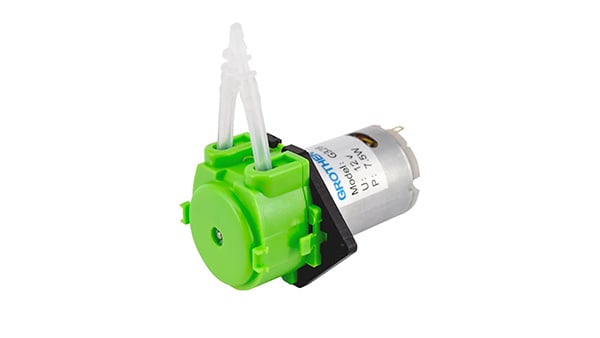
- Peristaltic Pumps: These pumps work by compressing and releasing a flexible hose or tube, thus creating a flow of chemicals. Advantages include ease of maintenance and the ability to pump chemicals containing particles or sensitive substances.
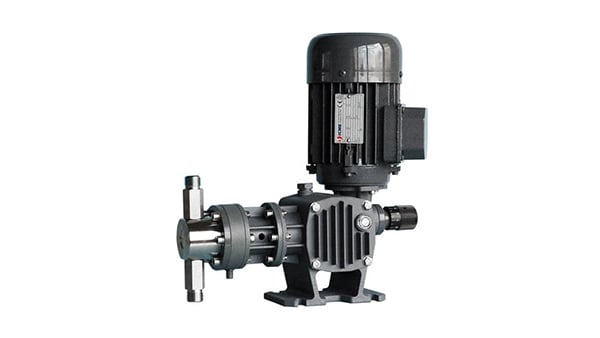
- Piston Pumps: These pumps use pistons to pump chemicals. They are suitable for applications that require high pressure and excellent accuracy in volume regulation.
Each of these pump types has advantages that make them suitable for specific applications in water and sewage treatment. The selection of the right type of dosing pump depends on various factors, such as the type of chemicals used, the level of accuracy required, and the specific operational conditions of each treatment facility.
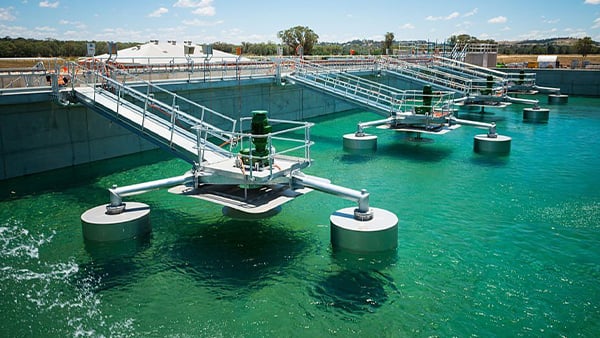
The Role of Dosing Pump in Water Treatment
In the water treatment industry, the role of dosing pumps is inevitable and critical. These pumps are widely used to introduce different types of chemicals, each of which has a specific purpose in the treatment process. Examples of such chemicals include chlorine, which is used for disinfection; pH adjusters, which play a role in stabilizing the pH of the water to prevent corrosion or excess acidity; as well as coagulants that help agglomerate small particles for easier removal.
Precision in the dosage provided by the dosing pump is a key factor that not only affects the quality of water produced, but also the overall efficiency of the treatment process. Precise dosing ensures that the required amount of chemicals is used optimally, avoiding overuse that can lead to negative impacts on both the environment and operational costs.
In addition, the use of a dosing pump allows for better control over the treatment process. With the ability to accurately regulate the flow of chemicals, dosing pumps allow the water treatment process to take place in a consistent and reliable manner, which is crucial in meeting water quality standards set by government regulations and industrial safety standards.
The importance of dosing pumps in the water treatment process is evident in the fact that they are used in a variety of applications.
The importance of dosing pumps in water treatment is not only limited to efficiency and accuracy, but also to their adaptability. With the ability to adjust chemical dosages according to changing needs and water conditions, dosing pumps play a strategic role in maintaining the sustainability and reliability of water treatment, which ultimately greatly impacts the health and well-being of the community.
Are you looking for solutions to improve efficiency and sustainability in water and waste treatment? Do you need help understanding how dosing pumps can be integrated into your system to optimize operations and reduce environmental impact? Feel free to contact us.
We at have deep expertise and years of experience in providing efficient and eco-friendly dosing pump solutions. Our team of dedicated and experienced experts is ready to assist you in planning, implementing, and optimizing the use of dosing pumps for your specific needs.
